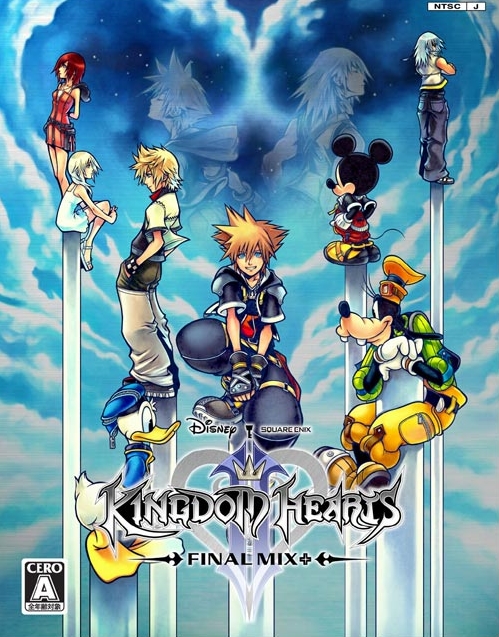

The album starts on a memorable note, with a new version of “Dearly Beloved” capturing our interest - anybody who has already listened to the first Kingdom Hearts soundtrack will find this a particularly touching way to begin the second adventure, though I daresay that newcomers, too, will be swept away by the lush orchestral overhaul it has been given.

As in the first soundtrack, Shimomura rarely disappoints with her melodies, especially standing out in her musical realisation of all the different ‘worlds’ that Sora, Goofy, and Donald visit during their quest. I do not really think that asking whether the album is ‘good or not’ would produce a reliable or clear answer, simply because opinions are bound to vary immensely, and basic quality, for the most part, does not seem to be one of the main issues. The question is, does her music absorb us as much as before? Body Expectations are high how could they not be, after such a good original product? But at last now, we get to listen as the composer delves back into the world of Kingdom Hearts once more, taking us along for the ride. Now we move forward to January 25th, the release date for the Kingdom Hearts II soundtrack, and Yoko Shimomura’s triumphant return. Highlights here included the Castle Oblivion and Twilight Town area and battle themes, showing as much innovation as those pieces on the original soundtrack. However, Chain of Memories was released for the Game Boy Advance with a fair amount of new material (as well as a lot of recycled old tracks), credited under Shimomura’s name, easing the tension a little bit. This was probably part of the reason that some speculated there might be a change of composer for the proposed sequels. Shimomura described how she found the Original Soundtrack quite ‘difficult’ to compose for, since there were so many ideas to fit into the one score. Once the ending credits had rolled, most would agree that Shimomura contributed considerably to the overall success of the game, leading people to hope that she would return for the sequels. Due to its emphasis on action-based gameplay, the Kingdom Hearts Original Soundtrack contained a large number of battle themes, as well as a successful number of colourful area tracks to represent all of the different Disney worlds Sora travels to. For the most part, the soundtrack was a very strong one, with only a few unpleasant filler-tracks to separate the great compositions. Yoko Shimomura composed the music score, borrowing in some instances from classic Disney melodies and Tim Burton’s The Nightmare Before Christmas, while Hikaru Utada composed the theme song “Hikari”. The games have you following the story of Sora (and to a slightly lesser degree, his friend Riku) who travels to different worlds sealing up keyholes with his keyblade to foil the infection of evil in the universe his enemy are the heartless, and anybody else behind their amassing numbers.Īs ever, on the modern market, to achieve complete success games must show flair in all areas and the original release of Kingdom Hearts was particularly strong in the sound department. It has subsequently become a fan favourite among recent Square releases, justifying the existence of the Gameboy Advance semi-sequel Kingdom Hearts: Chain of Memories and the game to which it intended to lead up to, Kingdom Hearts II. However, the sheer quality of the final result, from the enjoyable action-based gameplay to the superb voice talent, resulted in positive reviews from the critics, and secured a success for the game on its own merit. By combining a worthy storyline by Tetsuya Nomura with an all-star cast of Final Fantasy and Disney characters, a zany formula was forged that could have easily been a failure. Kingdom Hearts II is the much-anticipated sequel to Square and Disney’s famous collaborative adventure, created shortly before the merge with Enix.


 0 kommentar(er)
0 kommentar(er)
